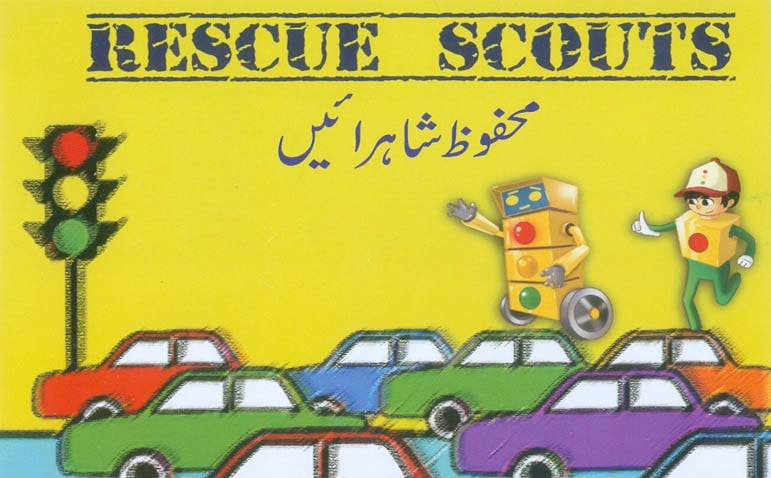

Various forces are coming together to educate the masses. Recently, a vibrant activity with children has come to the fore where a team of educators go to schools and conduct activities with children. The Citizen’s Mobility & Development Foundation (CMDF) is preparing ‘Rescue Scouts’ in collaboration with Rescue 1122.
It’s a programme developed to educate and train children on safety modules. It all starts with respect for law. Civic responsibilities start with obeying traffic rules; following the signals, wearing helmet while riding a bike, abstain from driving before reaching the lawful age and cross roads from a place and at a time when it is safe.
Lessons are planned around these themes. Children are taught and quizzed. The activities are interactive. While people abroad wear helmet on bicycles as well, there is no such practice here. Children, particularly, sit behind or in front of the driver on motorbikes and do not wear a headgear. Nobody talks of wearing helmet on bicycles. The CMDF does. "A good number of lives would be saved if children riding bikes wear helmets too. If there is a child on motorbike that meets with an accident, he is more susceptible to death," says Huma Daha who heads the Citizen’s Mobility & Development Foundation.
She goes to schools to create awareness among schoolchildren with her team comprising seasoned teachers. She has worked at the New York Transport Department and has headed the planning and operations wing of the Lahore Transport Authority (LTC) among other things.
She says, "A father had given a letter to his 9th grader son, permitting him to drive his car. How outrageous. Following the law protects all of us."
Creating a safe environment is the first thing. It starts with giving way to others, having a civil tongue and staying away from fights. All this is very important but lecturing the children won’t do. Teachers are their role models. A teacher who shouts at his pupils or is unkind with words, cannot expect them to be civil. Only kindness begets kindness.
Rescue 1122, the partner in this activity, has its focus on training children in first aid and saving life. Dr Rizwan Naseer who is heading rescue 1122 says, "The difference between developed and developing countries is respect for human life. 700 to 900 accidents are reported in 24 hours from all over Punjab; 66 per cent do not have licence and 80 per cent of them are motorcycle accidents. By wearing helmets you can reduce accidents hugely. 10 to 12 per cent accidents are at construction sites because of unsafe practices. Underage driving has become a norm. Teach children simple indigenous solutions," he says.
"We are going to bring up a Community Emergency Response (CER) team in every union council and we are going to bring this change through children," says Dr Naseer. 1122 plans to impart training in schools in the morning and in colleges in the evening.
Spinal injury requires very careful handling or it paralyses the person for life but trauma victims are handled like sack. Trained students and community can make a huge difference in rescue work.
"People need to know that heat stroke victims should never be given water to drink," he says. Those working on petrol pumps need education on how to handle fire in case one erupts but they do not know anything, Naseer goes on to say.
We all need to know how to control bleeding, remove foreign body, airway obstruction in adults and infants and handle fractures. 1122 is already on its way to train schoolchildren in handling emergencies and giving first aid.
Dolphin squad is working towards creating awareness about crimes and penalties at all levels. They do activities with children that help drive the point in.
In elementary schools, CMDF and 1122 do multi-media presentation, mime performance and hold a pledge ceremony. They do activities with junior schoolchildren as well and are developing a programme for senior school as well. They give a badge of ‘Rescue Scout’ to the children at the end of the training.
Civil society has been initiating and holding consultations with educated people from different walks of life on various subjects of great importance in our lives to evolve a framework. The outcomes of these discussions and activities are presented to the Education Department and the curriculum wing so that the ideas may be incorporated in the curriculum which is an ongoing thing.
After the reports of child abuse from Kasur, the Punjab School Education department came up with a guide for children, parents, teachers alike on how to protect children.
Inculcating good habits among children is another area of CDMF’s focus. Good habits promise success and bad habits lead to troubles. A nation’s success depends on the habits of its people. With age we become fixed in our ways. The only people we can help adopt good habits are children. They are quick to learn and will carry on to the next generation.